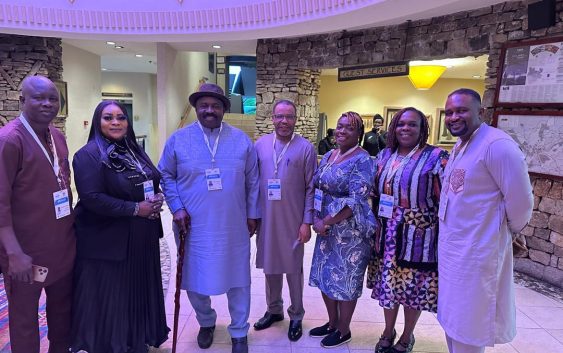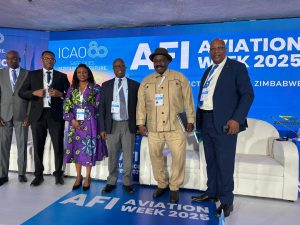- Domestic carriers risk further contraction as local traffic drops to 12.54 million from 14.52 million
- Airport Police nabs suspect in N1 billion romance fraud
- Hurdles, outlook for Nigerian carriers in 2026
- Airfares: Stakeholders decry opaque ticket structure, seek transparency
- Aviation Year 2025: Sector at critical reset point
Najomo: How protectionism hinders air connectivity, trade growth, high fares in Africa

The Director-General of Nigerian Civil Aviation Authority (NCAA), Capt. Chris Najomo said African states face a number of challenges in balancing national carrier protectionism with the need for liberalization and regional connectivity.
Protectionism, he lamented often leads to fewer carriers, poor service quality, and higher ticket prices for consumers, stressing that there is often a disconnect between aviation, tourism, and trade policies that undermines liberalisation goals.
These challenges, he noted stem from political, economic, regulatory, and infrastructural factors.
He however stated that as part of the Nigeria’s government policy trust, his administration through the backing of the Minister of Aviation and Aerospace Development, support the growth and sustenance of local airline businesses whilst holding them to the highest international standards in the aviation industry.

Najomo stated this at the tenth International Civil Aviation Organisation (ICAO) Africa Indian Ocean AFI region Aviation Week Symposium- Session 5, at the Elephant Hills Resort in Victoria Falls, Zimbabwe, with the theme ‘Optimizing Air Transport connectivity for Sustainable Economic Development in Africa’ where he engaged in a question and answer with delegates.
He enumerated the successes of the Ahmed Bola Tinubu’s administration in reshaping Nigeria’s aviation industry to make it globally competitive.
Listing some the challenges which he said are still a clog in the wheel of progress for national airlines, Najomo explained that national airlines are national pride and identity, stressing that governments are aware that liberalization is best for air connectivity.
He maintained that most governments in Africa find it difficult to embrace full liberalization and instead practice protectionisms to shield their airline from competition.
He said, “There is also the fear that liberalization will undermine their national carrier’s market share and profitability. The slow implementation of the Yamoussoukro Decision and the Single African Air Transport Market (SAATM) has made air transport connectivity cumbersome.
“Look at how many African states delay the implementation of SAATM because of the fear that they will lose control of certain routes which may negatively impacts on their national airlines. The other is the absence of economic regulations. Most African states have not yet developed robust economic regulation to provide the needed assistance in balancing the needs for liberalization of the regional routes.”
He posited that the lack of autonomous civil aviation authorities have done incalculable damage to air transportation in the continent.
“Some States are yet to have autonomous aviation sector. They therefore do not practice globally accepted practices in air transport liberalization. We also have the visa barriers. The benefits of liberalised air transport especially ease in movement of passengers is not achieved under strict visa regimes between African States.
“The African Union 2063 initiative of the African passport and free movement of people and goods can help foster trade and tourism whilst increasing inter African connectivity amongst member states.”
“There is the challenge of consumer impact and policy. Protectionism often leads to fewer carriers, poor service quality, and higher ticket prices for consumers. There is often a disconnect between aviation, tourism, and trade policies that undermines liberalisation goals.
Protectionist policies, implemented by African governments to safeguard their national airlines, are a significant hindrance to the growth of the aviation industry in Africa.
These policies limit competition, restrict market access for other airlines, and prevent the open skies principles that promote efficiency and lower costs.
This, in turn, leads to higher airfares, fewer routes, and limited economic opportunities across the continent.
Why a huge number of experts in the field of aviation have called for lifting of barriers of protectionism that stunt air transport growth, others maintain that protectionism is the best way to protect their market share from predatory airlines from Europe, Asia and the United States.



